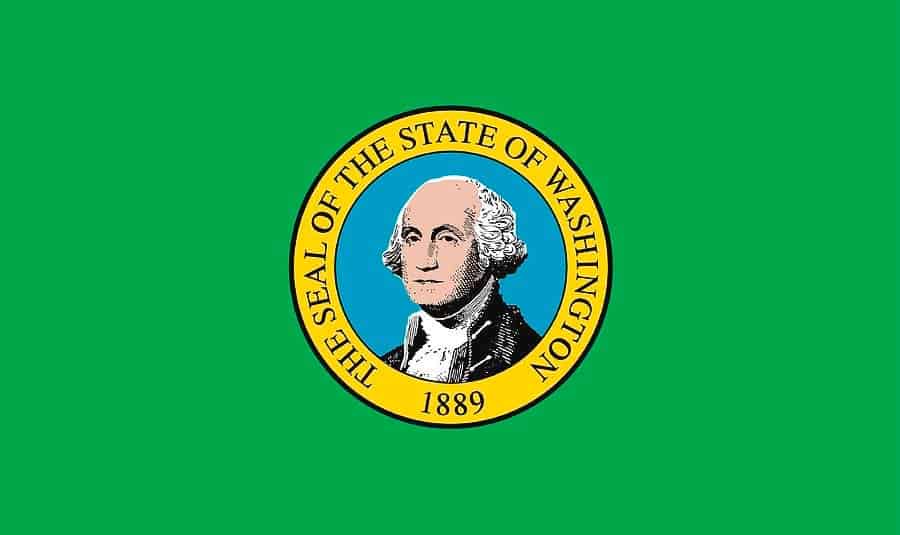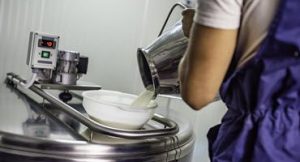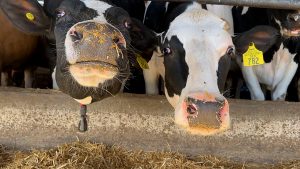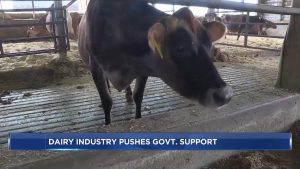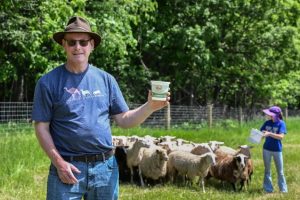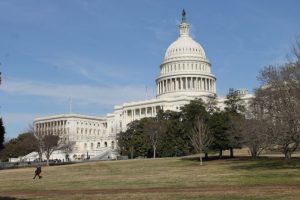
Farmers in Washington are supposed to be exempt from the new cap-and-trade program but, six months in, some say they are still getting hit with added fuel costs.
The state Department of Ecology says it has given all of the necessary resources to fuel suppliers to exempt farmers. The fuel suppliers say the department has not given them enough guidance for how to track the exemptions as required by law. And farmers seem to be caught in the middle, with some saying they’ve been paying an added 40 to 60 cents per gallon of gas or diesel.
“We’ve had this finger -pointing going on,” said Jay Gordon, an Elma farmer and policy director at the Washington State Dairy Federation. “It’s really just about creating a system of accounting for that fuel.”
The situation is unfolding against a backdrop of critics blaming the cap-and-trade program for driving up fuel costs in Washington overall.
The Climate Commitment Act, which passed the Legislature in 2021, created the program where the state caps how much carbon pollution companies can emit. If a company can’t clean up their operations to meet the cap, they can purchase allowances from the state to make up for their emissions.
Ecology has launched a new work group to dig into cap-and-trade exemptions issues. It will include fuel suppliers, farmers and climate advocates who will try to find solutions. The group will meet between June and September. Its first meeting is scheduled for next Thursday.
Ecology has also posted guidance for how companies can deal with exemptions and has drafted and made available an optional exemption certificate.
Claire Boyte-White, a Department of Ecology spokesperson, said the law is “very clear” about who is exempt and pointed to the department’s guidance. She said that guidance mostly leaves it to fuel suppliers to decide how best to track exemptions.
“We don’t want to tell them how to manage their bookkeeping,” she said.
But fuel suppliers said they have not received enough support from Ecology.
Glenn Thomas, vice president of supply and logistics at Richland-based fuel distributor Christensen, said there needs to be a better understanding from the state of how fuel distribution works. Tracking the cost of fuel from the refinery down to a small farmer can be complicated.
He said fuel refiners, the ones who pay for cap-and-trade emissions allowances, don’t always see the end user of the fuel, which can make it difficult to track who should get a carveout.
“I don’t think the state really understood that,” he said.
The state held its second allowance auction last month and drew in more than $557 million to use on programs to reduce carbon emissions and fight climate change.
Though companies do not have to comply with the emissions cap until next year, farmers say fuel suppliers have been passing rising costs from the allowances to individual customers.
But according to the state law that established the program, fuels used in the agricultural, maritime or aviation sectors are supposed to be exempt from the emissions cap and should not be subject to extra fees.
For agriculture, the law exempts “motor vehicle fuel or special fuel that is exclusively for agricultural purposes by a farm fuel user.” But it also says the exemption is available only if the fuel buyer provides the seller with an exemption certificate that meets standards set by Ecology.
Christensen is one of four suppliers who are offering an exemption for farm fuels, Boyte-White said.
“We know that it’s working in some places,” she said, though she added every supplier selling fuel to farmers should figure it out.
Thomas said the hardest part of coming up with the exemption process was negotiating with all of the people involved in fuel production. That includes oil terminal operators, producers and refiners, and companies that import fuel into Washington.
Since February, Christensen has used Ecology’s exemption certificate. It requires farmers to attest that they will use the fuel for agricultural purposes. A farmer fills that form out and returns it to Christensen, which gives it to their suppliers to exempt those customers from added fees they may charge stemming from the cap-and-trade program.
Customers also need to sign a certificate at the end of each year to summarize the total exempt gallons of propane or fuel they purchased.
Because Christensen has good reporting technology, they’re able to track deliveries of fuel and provide details of where the large amounts of gas and diesel are going, Thomas said.
But ensuring total compliance with the program’s rules is not straightforward. For instance, Christensen has no way of knowing whether a fuel-buyer puts diesel they’ve purchased into farm equipment or uses it for some other purpose that isn’t strictly tied to agriculture.
Boyte-White said the state doesn’t have a way to regulate the fuel prices charged by private companies, so there are no legal ramifications the state can impose for companies adding surcharges on farmers’ fuel. But she said documenting exemptions is a part of a company’s legal obligation to accurately report their emissions for the cap-and-trade program.
If exemptions are not accurately reported, there could be penalties, she said.
A bill introduced in the final weeks of the last legislative session looked to address farmers’ concerns about their rising fuel costs.
Co-sponsored by Democratic Sens. Mark Mullet and Joe Nguyen, it would have created a program for farm fuel users to submit a quarterly application to receive money from the state to make up for any added costs they may have been charged. It would have also prohibited companies from including a separate charge related to the cap-and-trade program on their billing statements.
The bill did not get a committee hearing before the session ended in late April.
Despite early concerns, Gordon said cap-and-trade could also be good for farmers.
He said dairy farmers are in the process of looking at ways to capture methane in their production, a process that could allow them to reduce emissions and make money.
A number of farmers in California already operate similar projects, he said. Through a methane capture program, farmers can take the emissions from their cows and convert it into energy that can power cars or homes.
“We’re seeing some possibilities where agriculture can come in and do something different to reduce our carbon footprint and create a marketable green energy,” he said.
